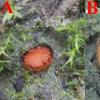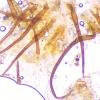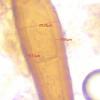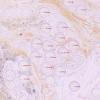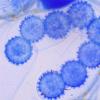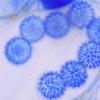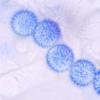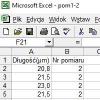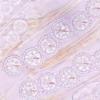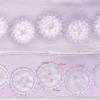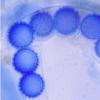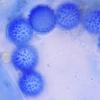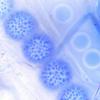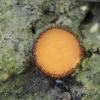
09-07-2024 16:06
Kozak RobertHi. I found this Scutellinia in the deciduous for

08-07-2024 11:14
Thomas Læssøehttps://svampe.databasen.org/observations/10432220

09-07-2024 16:35
Kozak RobertHi.I found this Scutellinia in at the bottom of a

06-07-2024 21:49
Joaquin MartinHello, I found this Scutellinia on Fagus, on very

04-07-2024 21:30
Thomas Læssøehttps://svampe.databasen.org/observations/10433321

05-07-2024 11:27
Thomas Læssøehttps://svampe.databasen.org/observations/10427894

28-06-2024 10:50
Thomas LæssøeSpores ca. 47 x 32 µm, 2-celled, highly constrict
I found this Scutellinia in the deciduous forest, on the soil.
Hymenium bright red. Apothecia diameter 1-2 mm. Everything looks like S.trechispora, but the ascospores have 20.4-23.7 µm diameters (Av=21.9 µm) (N=30).
Ornamentation up to 2.5 µm
Photo 1
A - Scutellinia with a diameter 21.9µm
B - Scutellinia 17.6µm in diameter (found about 100 meters away)
Hair: length up to 950 µm, width 40 µm, thick 8 µm walls.
Is my ID correct?



